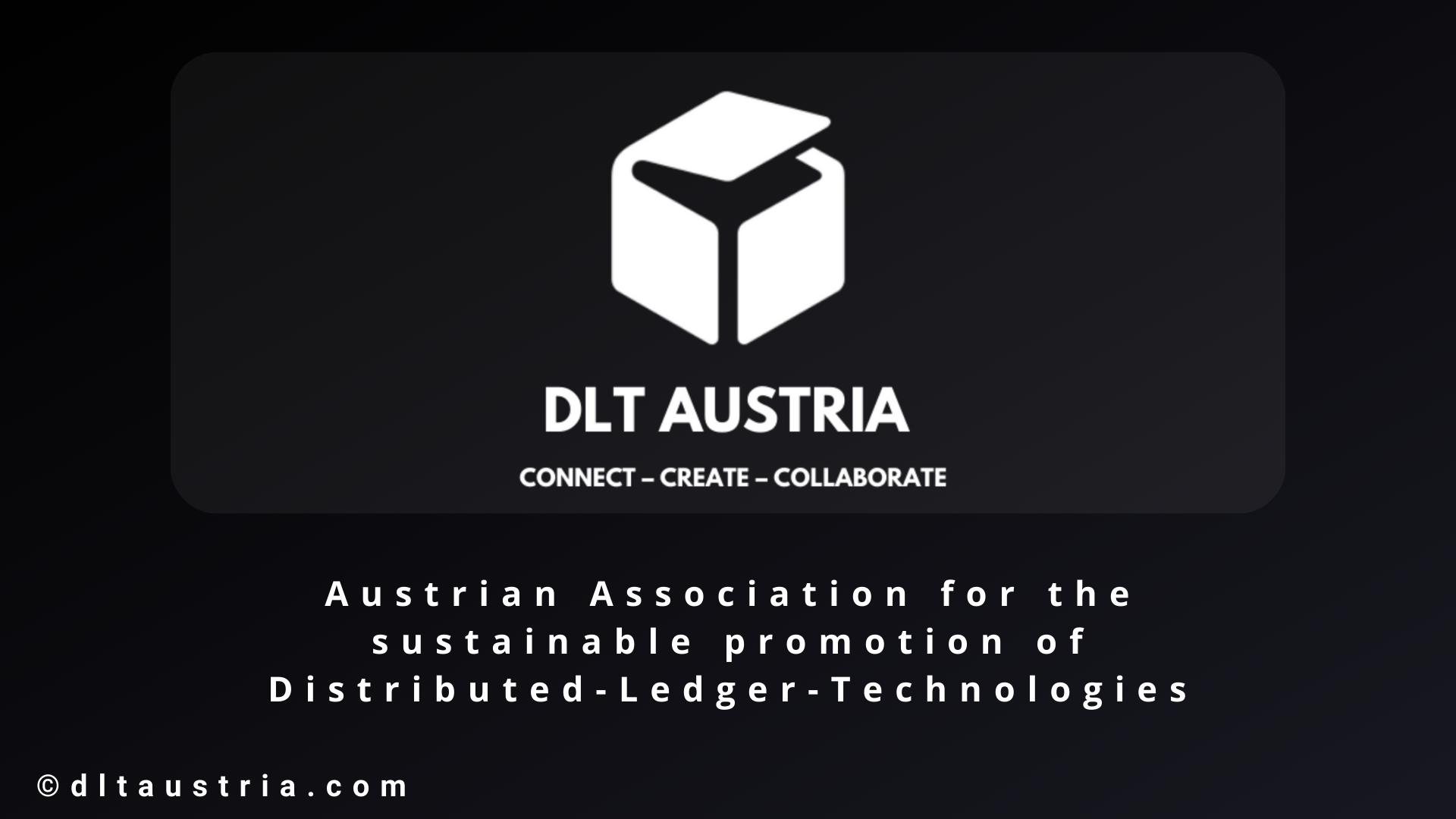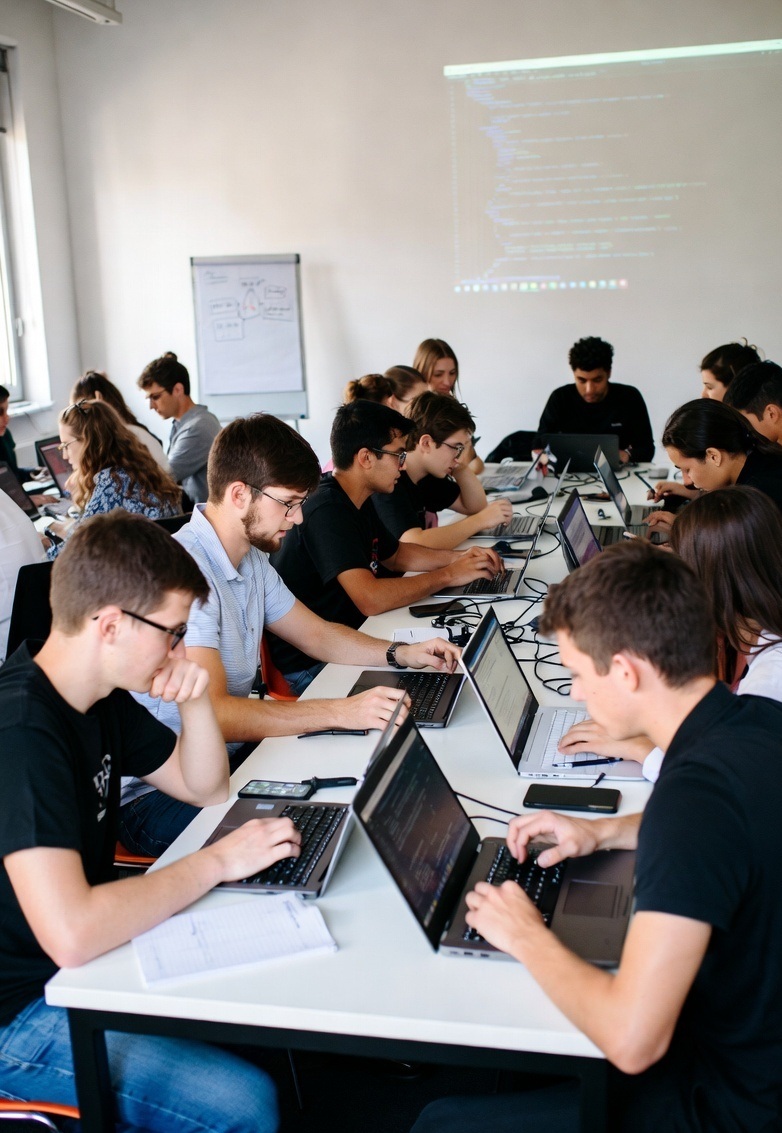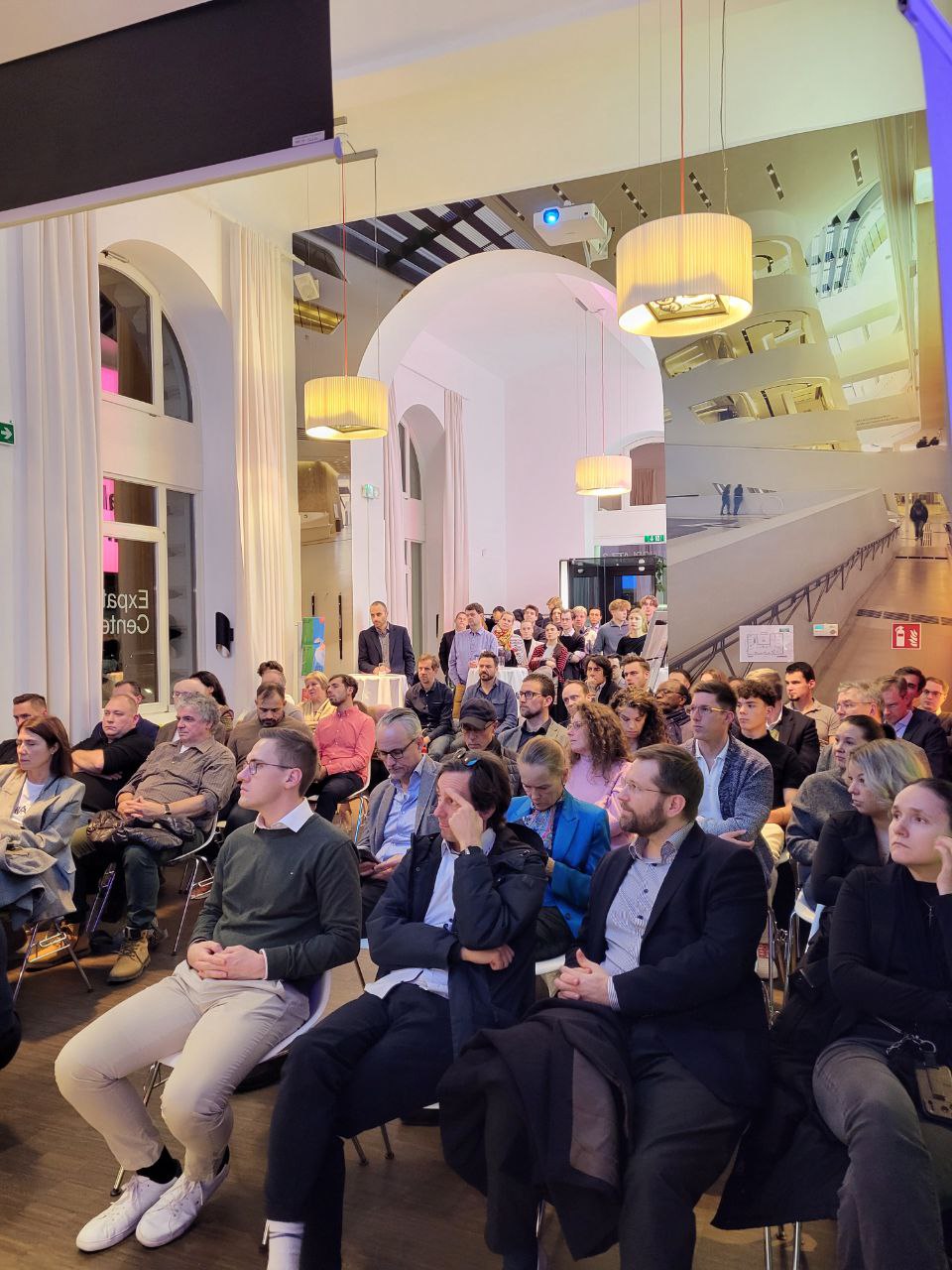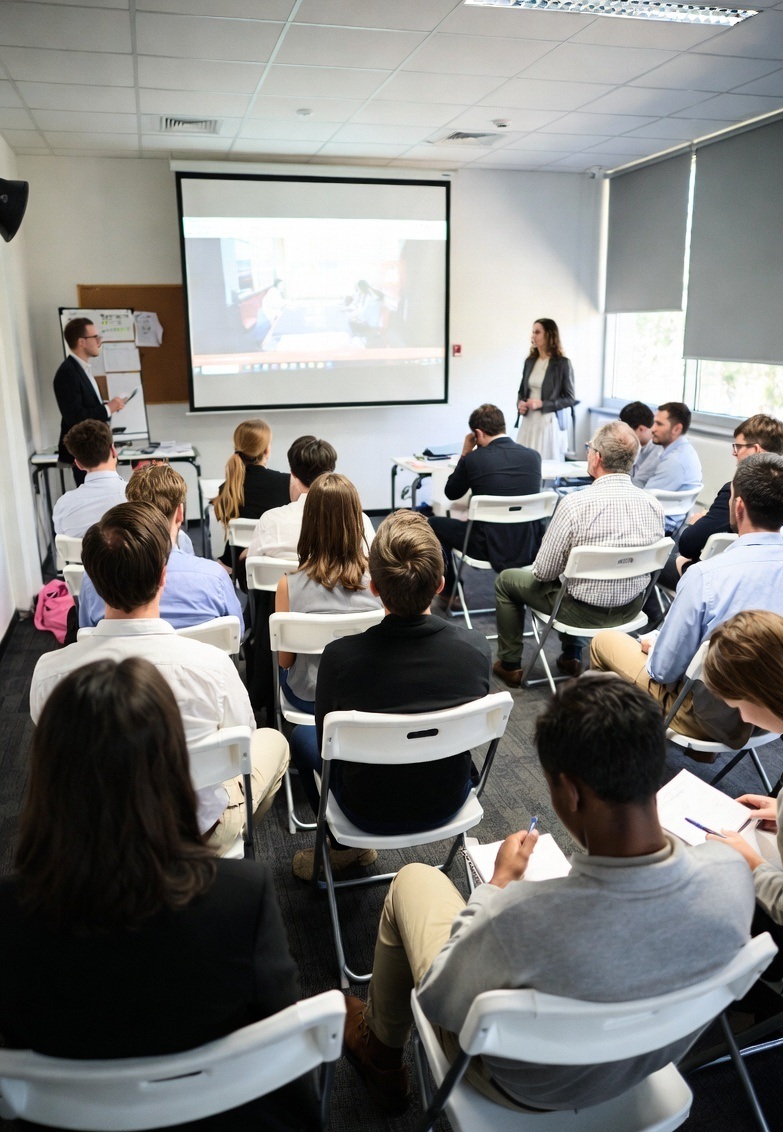Events & Conferences
We organize Vienna Blockchain Week and regular meetups bringing together international experts, startups, and enterprises to share insights and drive innovation in the DLT space.

Our role is to be the link between stakeholders and policymakers.
The goal is to build up basic knowledge for everyone interested in Distributed-Ledger-Technologies. The focus is set on the Blockchain-Technology and its use cases in business and industry areas like automotive, finance, insurance, public administration, real estate, transport, ICT, energy and many more.
We set up, we organise and we maintain all relations to strengthen the network. Our initial focus is set on Austria, with strong connections to Germany and Switzerland.
Many decision makers have the difficult task to find or identify a proper use case. The correct approach to this problem is crucial. We help to develop ideas or potential use cases free of limitations and offer therefore Innovation Workshops, Design Thinking and Hackathons.
The pilot project should analyse and question the Startups or enterprises in their and related industries. As a follow up it is necessary to evaluate if these ideas are putting the own business at risk and to find the optimal approach. We connect, we cooperate or we work together on innovative solutions.
To be able to ask the proper questions and reach your goals, it is necessary to understand the fundamental technology, their functionality and their use cases.
DLT Austria is bridging this gap and serves as a Think Tank and platform to facilitate an exchange for all related topics regarding Distributed-Ledger-Technologies.
A well-directed network, the coordination and the support of science, economy, education and community stakeholders enables us to facilitate a sustainable use of Blockchain-Technology in Austria.
DLT Austria is an independent think-tank and sees itself as a platform for the exchange of ideas on Blockchain-Technology. DLT Austria will contribute significantly to evolve Austria into a leading country for Distributed-Ledger-Technologies. Through targeted networking, coordination and promotion of players from science, business, education and society, we want to contribute to the targeted and sustainable application of DLT in Austria.
We are accomplishing awareness for the benefit, the opportunities but also for the consequences of Blockchain-Technology (Transformation process)
We are the main driver for Blockchain initiatives
We are a platform for knowledge, exchange and communication
We are the place to go for questions, problems or ideas related to DLT
We are the independent think-tank and platform for Distributed-Ledger-Technologies in Austria. Our mission is to bridge the gap between innovation and implementation, connecting stakeholders from science, business, education, and policy to drive sustainable blockchain adoption.
We build awareness and provide fundamental education on Distributed-Ledger-Technologies, helping organizations understand opportunities, challenges, and real-world applications across all industries.
As the central platform for the Austrian blockchain ecosystem, we organize events, facilitate connections, and strengthen relationships between innovators, enterprises, researchers, and policymakers.
Through design thinking workshops, hackathons, and pilot project assistance, we help organizations identify viable use cases and transform blockchain concepts into practical solutions.
Our activities span education, networking, innovation support, and policy engagement to establish Austria as a leading country for Distributed-Ledger-Technologies.
We organize Vienna Blockchain Week and regular meetups bringing together international experts, startups, and enterprises to share insights and drive innovation in the DLT space.
Practical design thinking sessions and innovation workshops help decision makers identify viable blockchain use cases and develop strategies for implementation without technical limitations.
From fundamentals to advanced applications we provide comprehensive training on blockchain technology, smart contracts, and distributed systems for professionals across all industries.
Active networking and relationship management across Austria, Germany, and Switzerland creating a strong ecosystem where ideas flourish and collaborations emerge naturally.
We serve as the link between stakeholders and policymakers facilitating dialogue on regulation, standards, and frameworks to support responsible blockchain adoption in Austria.
Through hackathons and collaborative sessions we help organizations explore blockchain applications in finance, supply chain, identity, real estate, public administration, and beyond.
We assist startups and enterprises in analyzing, testing, and validating blockchain solutions ensuring projects are technically sound and aligned with business objectives.
Connecting academic research with industry needs we promote scientific excellence and practical innovation in distributed ledger technologies and related fields like AI and IoT.
From education to implementation we offer comprehensive support for organizations exploring and adopting Distributed-Ledger-Technologies in Austria.





We place ourselves as a link between the DLT, Blockchain, Crypto and Digital-Assets Community. Through well-structured information and communication we meet your requirements and find the best fit for everyone.
Join our workshops, panel discussions and conferences covering the full DLT & Web3 spectrum. Free monthly sessions online or in Vienna with carefully selected topics.
DLT Austria is launching the Web3 Hub Vienna at DC Tower 3 to accelerate ecosystem building, coworking and community meetups in Austria's blockchain capital.
Visit Web3 HubA diverse group of blockchain experts, entrepreneurs, and academics driving DLT adoption in Austria.
Meet the TeamConnect with industry leaders, attend exclusive events, and shape the future of distributed ledger technologies in Austria.
Non-profit association Distributed Ledger Technologies Austria
ZVR-Zahl 1525722335 | Association register extract persisted on Ethereum